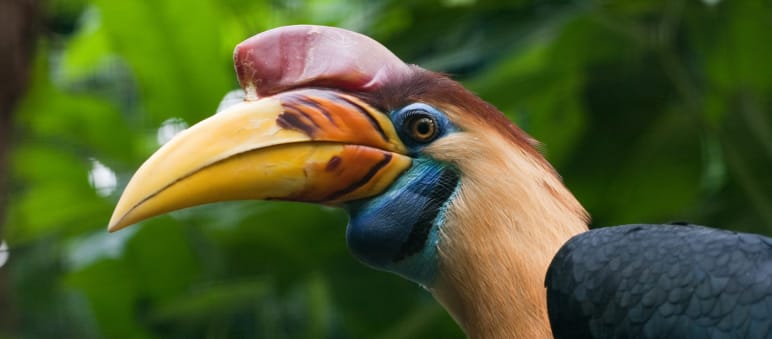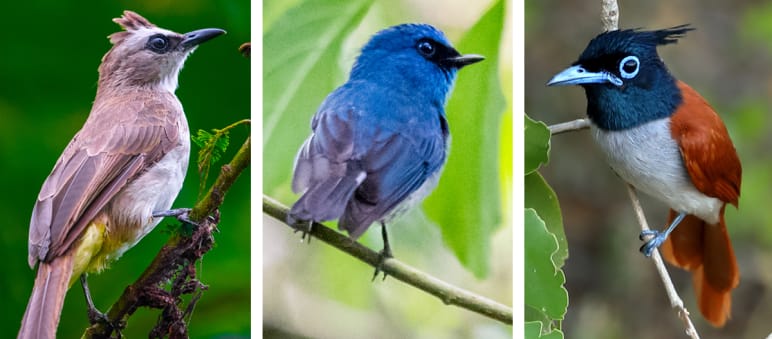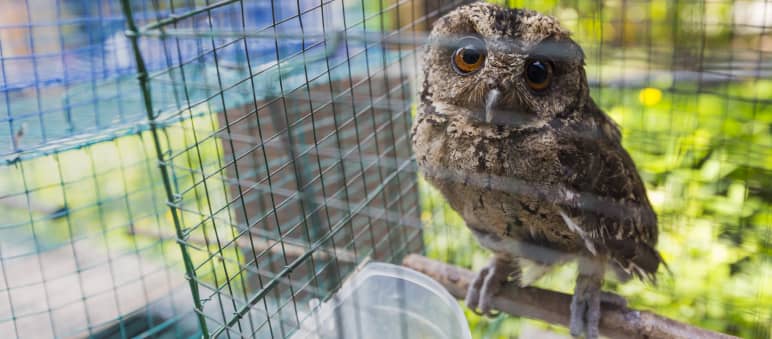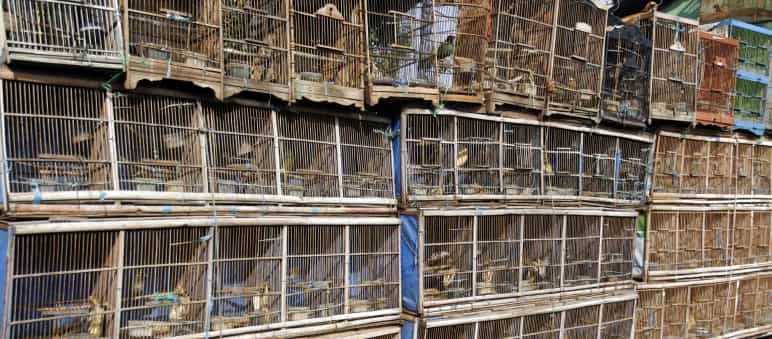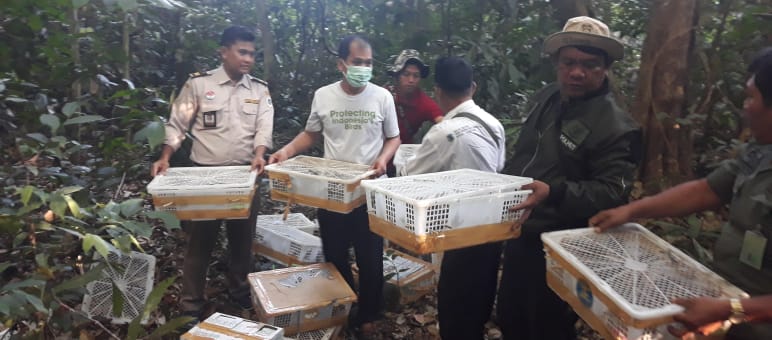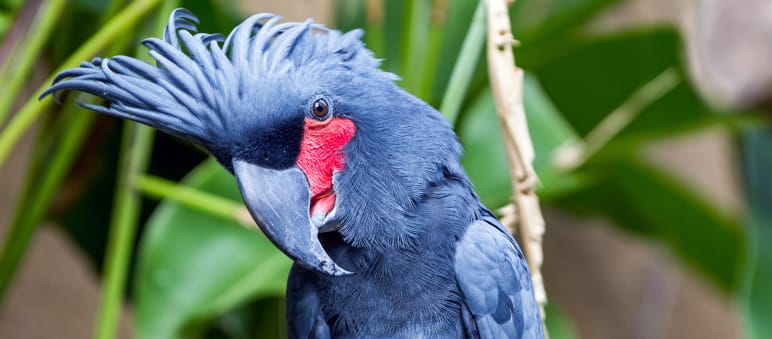Giving captive birds their freedom
In Indonesia, the illegal trade in birds is booming – to the point that forests are falling silent. Our partner organization FLIGHT is fighting the poachers, putting pressure on policymakers, and awakening people’s love of birds in the wild.
Project Overview
Project FocusWildlife
Project Objective protecting Indonesia’s birds, stopping bird and wildlife trafficking
Activities prosecuting wildlife trafficking
The scene is the Indonesian city of Lubuk Linggau: Richard and Bobby are following four cars toward the port in Lampung province. The two young men easily blend into the heavy traffic. As environmental activists, it is best that they do not draw attention to themselves. Richard and Bobby are bird conservationists and members of our partner organization, FLIGHT – Protecting Indonesia's Birds. They were tipped off that bird poachers are transporting their prey to the port today. Richard and Bobby shadow the vehicles for hours. “In our thoughts, we were suffering with the captive birds,” they report later. The potholed roads and sweltering heat are sapping them of energy.
In the harbor, fellow activists from FLIGHT are waiting, flanked by police officers. The four vehicles are stopped and checked. In their trunks, the officers find dozens of cardboard boxes and cages, densely packed with birds from the forests of Sumatra. They include emerald doves, blue-tailed trogons and even a young Malay eagle owl. The remainder are mainly songbirds: yellow, green and blue flycatchers, thrushes and sunbirds.
Most of the birds caught in Sumatra are destined for Java, crammed in boxes, cages and even plastic bottles, and are sold there at bird markets – if they survive the capture and journey.
One million wild birds are stolen from Sumatra’s forests each year
In a 2015 study, animal welfare activists counted more than 19,000 birds, including many endangered and protected species, at three markets in the capital Jakarta alone, including magnificent birds of paradise from the island of New Guinea, hornbills from Borneo and Sulawesi, cockatoos, parrots and even cassowaries.
Indonesia has an abundance of bird life: Scientists have documented 1,615 species, of which 419 are endemic. To put these figures into perspective, Europe is home to 430 bird species. The destruction of Indonesia’s rainforests is shrinking their habitat, while hunting and poaching are exacerbating the situation. The knock-on damage of the bird trade is incalculable, as many trees depend on birds for seed dispersal.
The bird catchers mainly supply the domestic market in Indonesia, but the wildlife trade is also big business internationally, offering rich pickings for a globally connected mafia. One million wild birds are stolen from Sumatra’s forests alone each year. The Javanese tradition of bird keeping and the sheer greed of the traffickers are causing forests to fall silent.
Combating wildlife trafficking and smuggling
FLIGHT has been pursuing bird trappers since 2018. Many of the activists previously worked for the Scorpion wildlife trade monitoring group and have years of experience in fighting wildlife trafficking and smuggling.
Whenever the conservationists are tipped off, police arrest the criminals and FLIGHT takes over the confiscated birds and releases them in protected areas. Between 2018 and 2021, the organization released around 140,000 birds.
“Our monitoring work is putting bird traffickers out of business because they have come to fear fines and bankruptcy,” explains Marison Guciano, the organization’s founder and director.
FLIGHT has created a list of smugglers and bird trappers and uncovered smuggling routes. The organization is also pressuring politicians to close bird markets. As long as such markets continue to exist, the bird trade and poaching will remain a viable business.
Keeping songbirds is a tradition in Java, and cages can be seen hanging in front of many houses. A man is not considered a real man until he has a house, a wife, a horse, a dagger and a bird. The bird represents a harmonious relationship with nature.
FLIGHT is working to change that mindset. “Our campaigns start with a love of birds,” says Marison Guciano. The animal rights activists produce videos and visit schools with the goal of teaching children to love birds – in the wild.
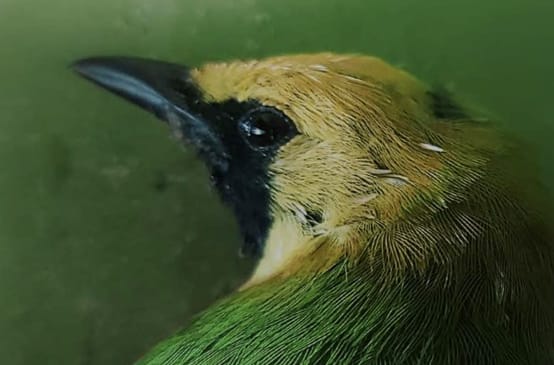
Indonesia: Striking a blow against the bird mafia
A truck carrying 6,514 birds crammed into 216 crates was seized at a port in Sumatra. This is the outcome of the tireless work of our partner organization, Flight.
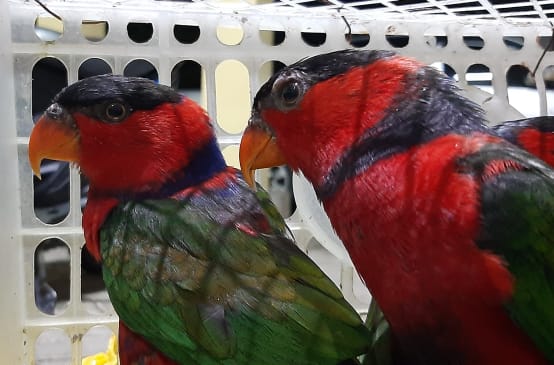
Rescued: Proboscis monkeys, leopard cats and black-capped lories returned to the wild
Our Indonesian partner, Flight, rescues wildlife from smugglers, fights the trade in exotic birds, and releases songbirds back into the wild.
